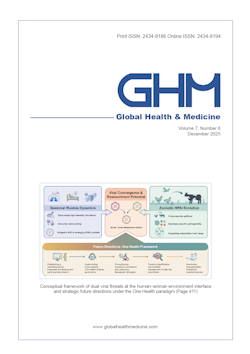Global Health & Medicine 2019;1(1):55-60.
Long-term outcomes in patients undergoing resection, ablation, and trans-arterial chemoembolization of hepatocellular carcinoma in the United States: a national cancer database analysis.
Kawaguchi Y, Chiang YJ, Velasco JD, Tzeng CD, Vauthey JN
In the United States, hepatocellular carcinoma (HCC) incidence rates were approximately three times higher in over 30 years. To investigate the long-term outcomes of patients who underwent resection, ablation, and trans-arterial chemoembolization (TACE) of HCC, we analyzed the National Cancer Data Base (NCDB), which is a nationwide oncology outcomes database and covers approximately 70% of new cancer cases in the United States. A total of 56,512 patients with HCC in the NCDB during 2004-2013 were retrospectively analyzed. Results showed that liver resection (48.5%) and ablation (57.0%) were performed more frequently than TACE (31.5%) in patients with AJCC stage I HCC. The 5-year overall survival (OS) was significantly higher in patients undergoing resection (52.4%) than in patients undergoing ablation (40.5%; P < 0.001) and patients undergoing TACE (36.1%; P < 0.001). For patients with AJCC stage I, the 5-year OS of patients undergoing resection (51.6%; P < 0.001) and patients undergoing ablation (51.1%, P = 0.005) remains significantly better than patients undergoing TACE (40.0%). However, the 5-year OS did not differ significantly between patients undergoing resection and patients undergoing ablation (P = 0.486). Additionally, the findings of our study confirm that the sub-stratification of T1 category by HCC diameter in the AJCC staging eighth edition (i.e., T1a, HCC diameter ≤ 2 cm and T1b, HCC diameter > 2 cm) is valid, with a 5-year OS of 54.1% and 50.4%, respectively (P = 0.031).
DOI: 10.35772/ghm.2019.01029







